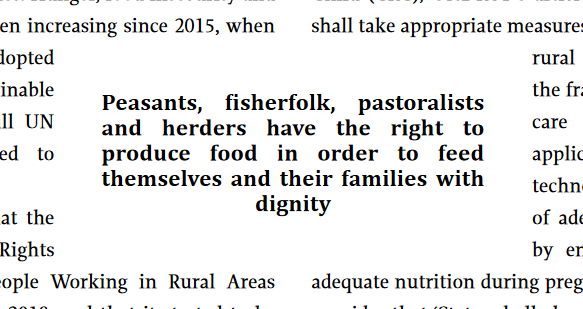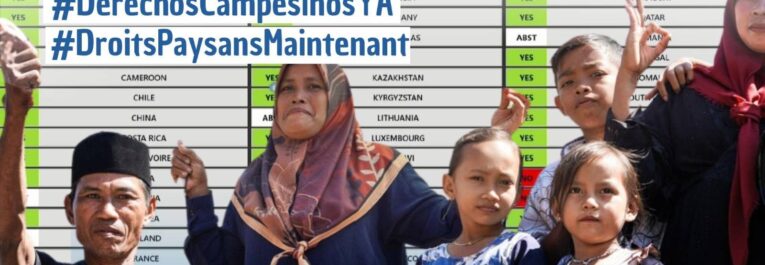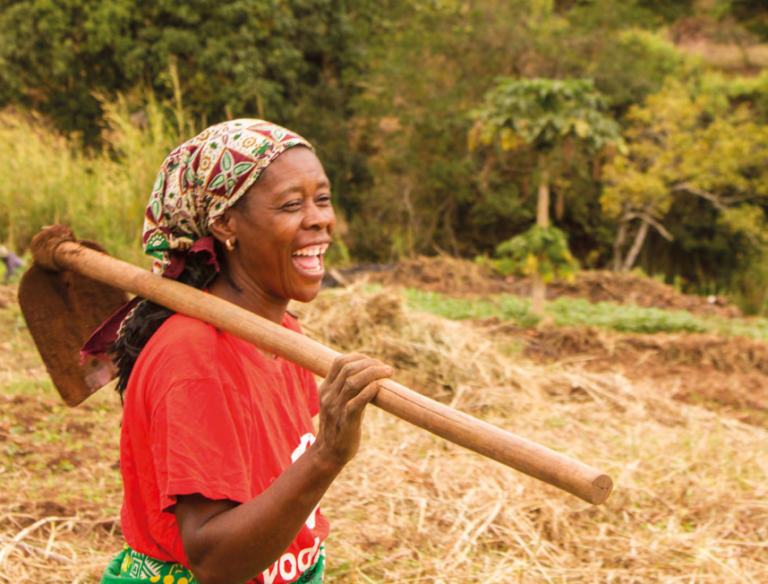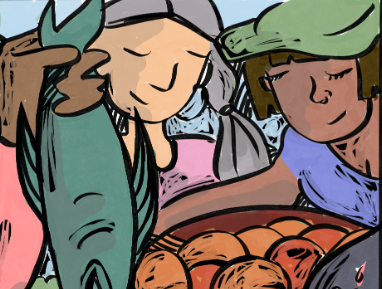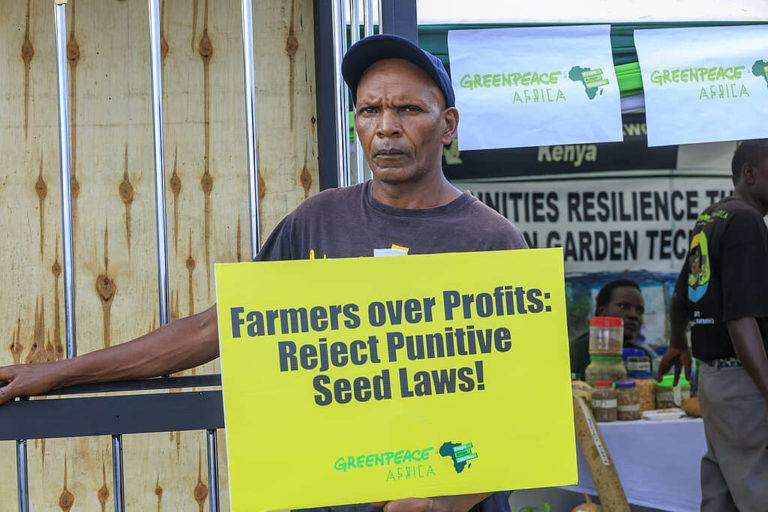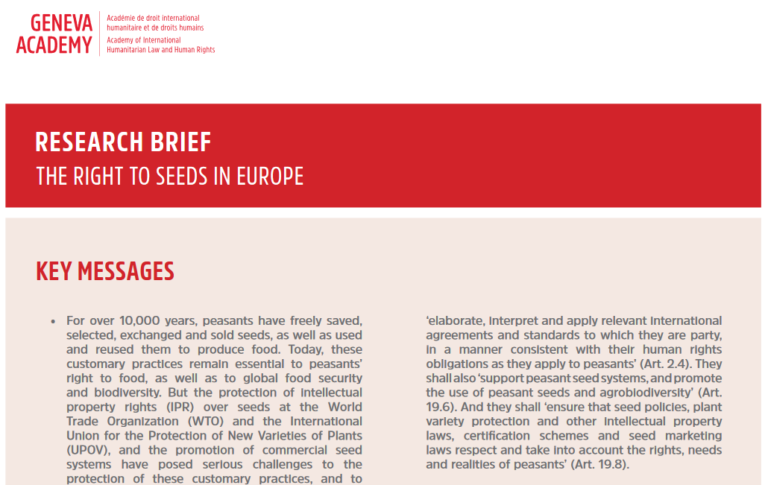The role of international and regional organizations in the UNDROP
This text was orginally published in a Research brief of the Geneva Academy for International Humanitarian Law and Human Rights.
This text tackles and puts light on the content of article 27 of the UNDROP, which establishes the responsabilities of international and regional organizations in terms of promotion and implementation of the provisions of the Declaration . In fact, these entities play a key role in many aspects and sectors related to food and agricultural systems, and therefore to the rights of peasants and other people working in rural areas.

UNDROP’s article 27 provides that United Nations (UN) specialized agencies, funds and programmes, and other intergovernmental organizations, including international and regional financial organizations, shall contribute to the full realization of the UNDROP, including through the mobilization of, inter alia, development assistance and cooperation (art. 27.1), and that they shall promote respect for and the full application of the UNDROP and follow up on its effectiveness (art. 27.2).
At the international level, the UN Human Rights Council created a UN Working Group composed of 5 experts on the rights of peasants and other people working in rural areas. It is also important that it integrates UNDROP in its monitoring work, including the Universal Periodic Review, and that other UN human rights mechanisms, in particular, the other UN special procedures and treaty bodies, include UNDROP in their work.
A UN Voluntary Fund for peasants and other people working in rural areas should also be established to support their participation in the activities of the UN system.
The Committee on World Food Security (CFS) shall integrate the implementation of UNDROP in its work, and the Chair of the UN Working Group on UNDROP should become member of the CFS Advisory Group, with the same prerogatives as those already given to the UN Special Rapporteur on the right to food.
UN specialized agencies shal also include the implementation of UNDROP in their work, and find opportunities to work together, as well as with organizations of peasants and other people working in rural areas for that purpose. These include the Food and Agriculture Organization of the UN (FAO), the International Fund for Agricultural Development (IFAD), the UN Development Programme (UNDP), the International Labour Organization (ILO), the World Health Organization (WHO), the UN Educational, Scientific and Cultural Organization (UNESCO), and the World Bank. The International Monetary Fund (IMF), the World Intellectual Property Organization (WIPO), and the World Trade Organization (WTO) shall also take UNDROP into account in their work. And UNDROP should be mainstreamed into the strategies aimed at achieving the Sustainable Development Goals (SDGs).
At regional level, parliamentary groups should be created on the rights of peasants and other people working in rural areas, and the promotion of these rights should be integrated in the work of parliamentary groups that are already established, such as the parliamentary fronts that aim to fight hunger in Latin America.
The European Parliament, which pushed European Union (EU) Member States to vote in favour of the adoption of UNDROP, and the European Economic and Social Committee (EESC) which called on the European institutions and EU Member State governments to actively support UNDROP in all future work leading up to its realization, should continue to promote the implementation of UNDROP in Europe. In Africa, the implementation of UNDROP should be integrated, inter alia, within the work of the Panafrican alliance on food security and nutrition. The Economic Community of West African States (ECOWAS) and the General Assembly of the Organization of American States (OAS), which have recognized the right to food sovereignty, should also promote the implementation of UNDROP in their regions.
Regional bodies should also promote and protect specific rights enshrined in UNDROP. For example, drawing inspiration from the African Union which has developed a progressive African Model Law for the Protection of the Rights of Local Communities, Farmers and Breeders, and for the Regulation of Access to Biological Resources, other regional organizations should promote a better protection of peasants’ right to seeds.
It is also essential that regional human rights bodies, including the Inter-American Commission on Human Rights, the Inter-American Court on Human Rights, the African Commission on Human and Peoples’ Rights, the European Court on Human Rights, the European Committee of Social Rights, the Association of Southeast Asian Nations (ASEAN) Intergovernmental Commission on Human Rights, and the Arab Human Rights Committee protect the rights of peasants and other people working in rural areas. The African Human Rights Commission should also establish a Working Group on peasants and other people working in rural areas in Africa, and the Inter-American Commission on Human Rights should create the mandate of a Rapporteur on the rights of peasants and other people working in rural areas.


